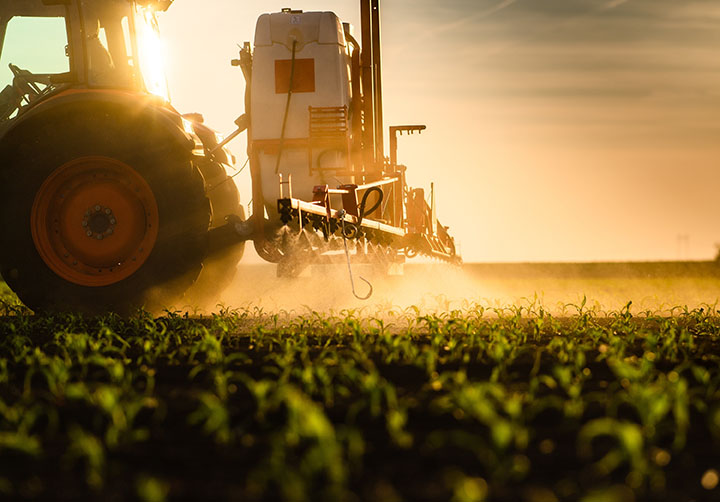
pesticides
Definition
Pesticides are chemicals that are used to control pests. Pests are organisms that can damage crops, livestock, or other resources. Pesticides can be classified by their target organism (e.g., herbicides, insecticides, fungicides, rodenticides), chemical structure (e.g., organic, inorganic, synthetic, or biological), and physical state (e.g., gaseous (fumigant)).
Pesticides work by interfering with the life processes of pests. For example, insecticides can kill insects by blocking their nervous system, herbicides can kill plants by disrupting their photosynthesis, and fungicides can kill fungi by preventing them from growing.
Pesticides can be effective in controlling pests, but they can also have negative environmental and health impacts. Pesticides can contaminate soil and water, and they can harm non-target organisms such as birds, fish, and bees. Pesticides can also pose a health risk to humans, especially if they are not used safely.
How can the word be used?
Pesticides are used to kill pests in agriculture.

Different forms of the word
Noun:
- pesticide (a substance used to kill pests).
- pesticide poisoning (the poisoning of a person or animal by a pesticide).
Adjective:
- pesticidal (of or relating to pesticides).
Etymology
The word "pesticide" is derived from the Latin word "pestis" (pestilence) and the suffix "cide" (killer). The first recorded use of the word "pesticide" in English was in 1939.
Question
When are pesticides used?
AQA Science Exam Question and Answer
Question:
Discuss the benefits and drawbacks of pesticide use in agriculture. Explain the potential impact of pesticides on both the environment and human health, and propose alternative strategies for sustainable pest management.
Answer:
Pesticides are chemicals used in agriculture to control pests and increase crop yields. They offer benefits like protecting crops from pests that could cause significant losses. Additionally, pesticides can help mitigate the spread of diseases carried by insects.
However, their use comes with drawbacks. Pesticides can harm non-target organisms, including beneficial insects and pollinators, disrupting ecosystems. Moreover, residues can accumulate in the environment, impacting soil and water quality. There are also concerns about pesticide exposure affecting human health, potentially leading to long-term health issues.
To address these challenges, sustainable pest management strategies are gaining prominence. Integrated Pest Management (IPM) combines various techniques like biological control, crop rotation, and the use of resistant plant varieties to minimise pesticide use. This approach aims to balance pest control with environmental and health considerations.
Crop diversification can help reduce pest pressure by breaking the cycle of pests that specialise in a single crop. Encouraging natural predators through habitat preservation also aids in pest control. Embracing organic farming practices that limit synthetic pesticide use and prioritise ecological balance further supports sustainability.